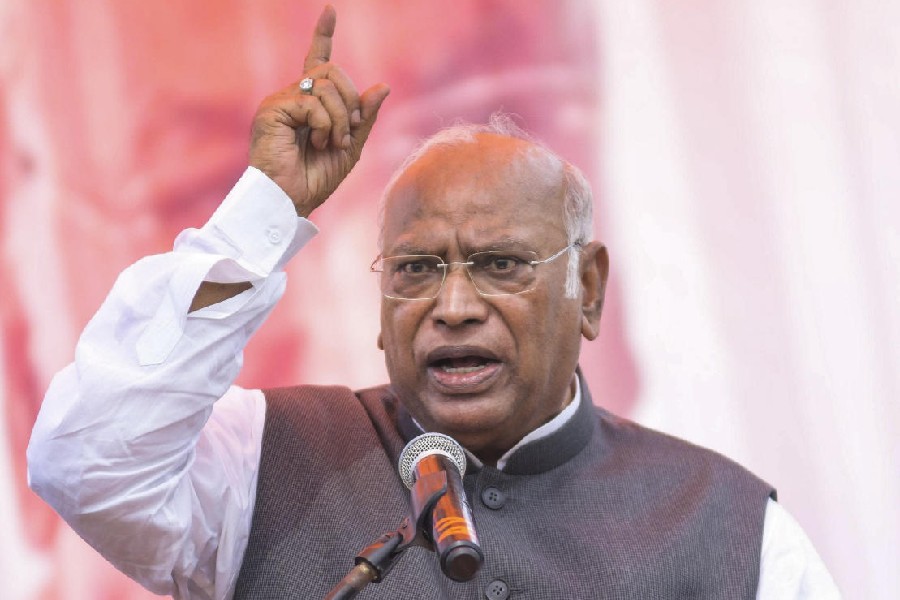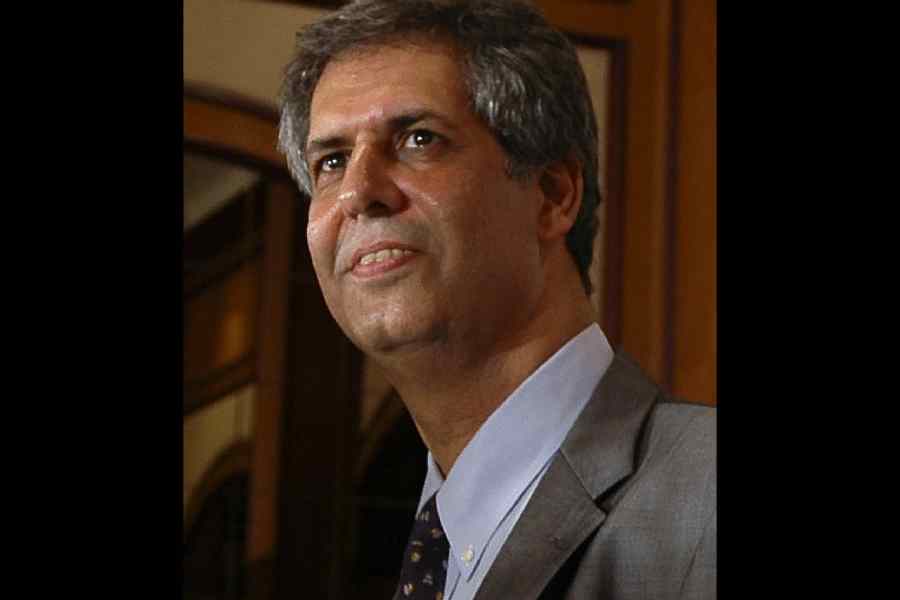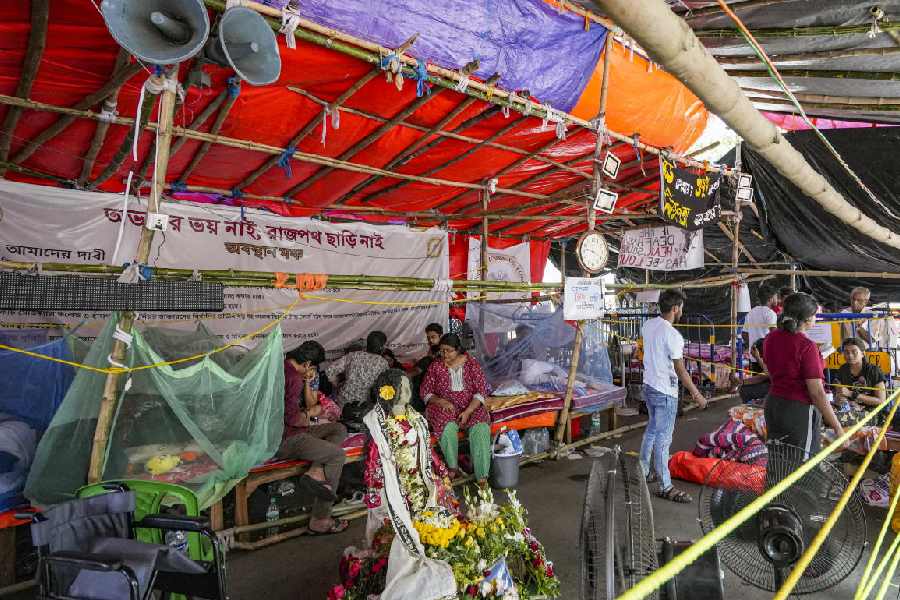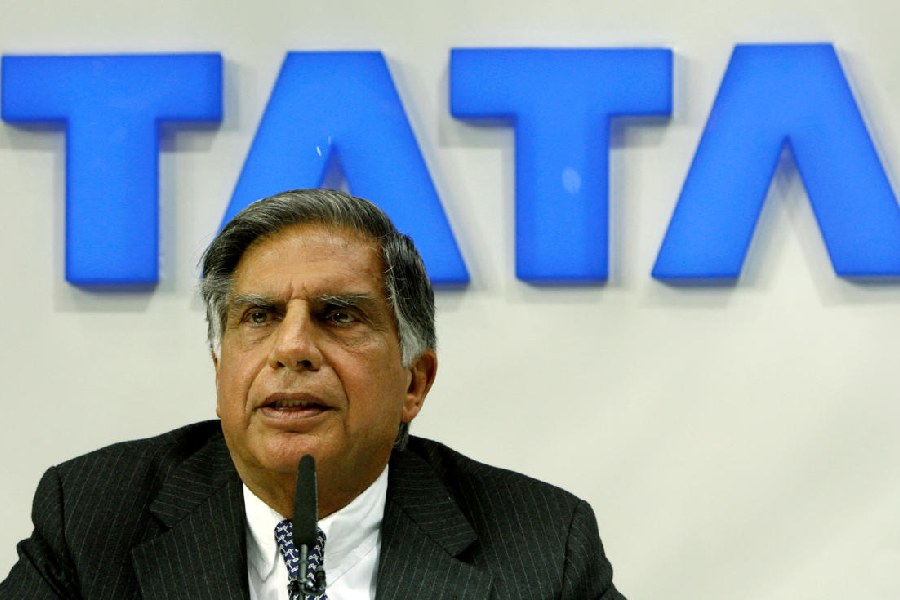Sir — Electronic and print media are full of reading lists for the lockdown, assuming that people will have more free time on their hands. But reality affords no such luxury. Work has not stopped. In fact, employees working from home often put in longer hours. There are also household chores like shopping, cooking, cleaning, washing clothes and so on. Where, then, is the luxury to make a dent in our reading lists? More important, with book shops shut and online deliveries put on hold, ebooks are the only way to access new books and few people can afford the devices necessary for these.
Rima Roy,
Calcutta
Costly delay
Sir — All that glitters is not gold. The Reserve Bank of India has allowed banks to defer the collection of EMIs on loans by three months. However, as usual, such policy decisions are not accompanied by adequate and clear information (“A gush of cash”, April 1). It is important to read the fine print.
A deferment is not a waiver. Unless people are facing a liquidity crunch, it is advisable not to opt for this scheme. Moreover, while payment of EMIs can be postponed, interest will keep accruing during the period of three months, increasing the loan burden at the end of the moratorium.
Moreover, such policy also does not make sense for the health of the Indian banking system. Indian banks are already riddled with bad loans. This blanket moratorium is likely to make this problem worse. Could banks not have been given a discretionary power to issue such a moratorium?
Rash decisions and people-pleasing policies have become a signature move of this government and other State agencies under it. Take, for instance, the emergency funds of the RBI that were transferred to the Central coffers. This money could have come in handy to alleviate the condition of the Indian healthcare system as well as to help the poor who are facing the brunt of the economic crisis owing to the pandemic.
S.D. Bhaduri,
Calcutta
Sir — The ultimate cost of the EMI waiver on customers as explained by the State Bank of India paints a scary picture. The bank said that for a home loan of Rs 30 lakh with a remaining maturity period of 15 years, the net additional interest for those who opt to defer EMIs for three months will be about Rs 2.34 lakh or roughly eight additional EMIs. Similarly, for an auto loan of Rs 6 lakh with a remaining maturity period of 54 months, the additional interest would be around Rs 19,000 or 1.5 extra EMIs.
Now consider the plight of those people who, lured by the promises of app-cab aggregators, had taken auto loans to buy a car. Given the lockdown, their business has taken a severe hit. They may be tempted to opt for the moratorium without realizing the cost at which this comes. There are many more instances of how this moratorium can actually end up hurting people’s pockets more than the pandemic-induced lockdown already is. Therefore, ordinary citizens should be careful before taking up this offer. Banks should explain the terms and fallouts clearly to those choosing this option. Otherwise, more misery awaits once the current storm passes.
Soumya Ray,
Calcutta
Tilted plates
Sir — The animal-origin of the coronavirus has raised, once again, pertinent questions about the future of sustainable eating. One option that comes up time and again in this context is that of lab-grown ‘clean meat’. Access to nutrition remains severely skewed across the world, with economic disadvantages and racial discrimination playing an important part in who gets to eat healthy food. A study by the United States Department of Agriculture showed that people of colour in the US are more likely to be food insecure regardless of income and education levels.
Will not the switch to lab-grown meat — the technology is far from the stage of mass production where it is affordable to all segments of society — only deepen the existing inequalities when it comes to nutrition? There is, of course, no arguing that drastic lifestyle changes are needed in order to save the earth and arrest the climate crisis. But this cannot be at the cost of the poor and the disadvantaged. Collaboration among food and livestock farmers, scientists and the State must pave the way forward wherein the switch in lifestyle is not disruptive.
Saheli Saha,
Calcutta
Parting shot
Sir — Of all the sacrifices demanded by the epidemic-induced lockdown, the one that cuts the deepest for Bengalis is the disappearance of mutton (“Coronavirus lockdown takes mutton off menu in Calcutta”, April 7). Having the entire family at home is a perfect opportunity to relish some light panthar jhol. But, unfortunately, since this luxury is not to be had, we are having to make do with gaach pantha instead.
Nilanjan Majumdar,
Calcutta











